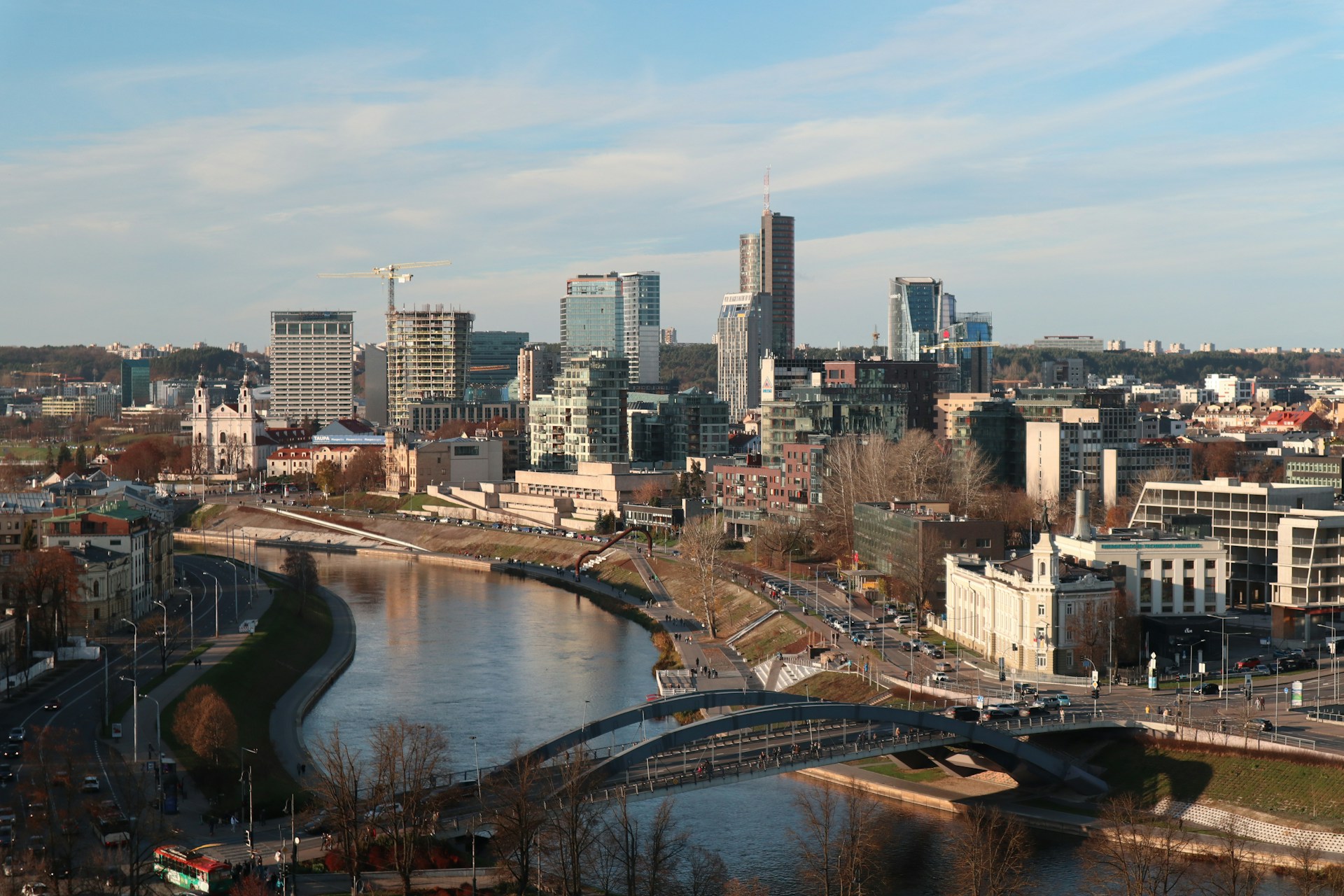Linas Jegelevičius
Moscow’s Crocus City Hall attack has cast a big shadow on all Tajiks toiling not only in Russia, but in the European Union, and Lithuania, too. Following the massacre which death toll stood at 137 persons as of Tuesday, the 26th of March, an advisor to Lithuanian President Gitanas Nausėda warned of “a risk factor” related to immigrants from Central Asian countries coming to Lithuania.
However, current and former heads of Lithuanian industries, like Sigitas Besagirskas, former president of the Vilnius Association of Industry and Business (VAIB), and Danas Arlauskas, president of Lithuania’s Employers Confederation (LDK), maintained to BNN that people of a single nationality should not become scapegoats in what S. Besagirskas , referring to the Moscow tragedy, called “possibly Putin’s plan.”
Kęstutis Budrys, the presidential advisor on national security issues, told the Žinių Radijas news radio, that “we should also be very cautious and attentive to the communities from Central Asian countries we have here as they have also grown several times.”
He added: “I am in no way suggesting that all those people who have arrived here are linked to possible extremist activities.
But the risk factor is definitely there.”
All four assailants who murdered at least 137 people in the concert hall in Moscow last Friday are Tajik nationals.
According to the advisor, there is a growing number of cases in Lithuania where Tajik nationals have been expelled from the country because of possible links with extremist organisations, adding that Islamist activities in Central Asia are intertwined with opposition activities against the long-standing regimes in those countries.
“The workload for our services here is only increasing,” Budrys warned.
However, the VSD, the country’s State Security Department, says nationals from Central Asia do not pose threats.
Meanwhile, the Migration Department has said that more than 6 300 Tajik citizens have residence permits in Lithuania. Most of them dwell and work in Vilnius, the Lithuanian capital, where the locals usually speak Russian, thus easing communication with migrants from Central Asian countries.
“You can find Tajiks in nearly every service sector here. They work as Bolt taxi drivers, but the majority works in construction sites, where many of them are paid off the books,” a migrant from Armenia, going only by his nickname “Aram”, told BNN.
Admitting that Tajiks are “naturally garnering more attention” following the Moscow massacre, Mindaugas Skritulskas, Conservative (TS-LKD) MP, doubted
if one nationality ought to be singled out when it comes to dealing with workers from third countries.
“Indeed, there are various ideas and proposals aiming to limit the type of immigration – especially from Central Asia – replacing the workforce with Ukrainians, who, culturally, are close to our mentality and et cetera, but I’d see the discussions happening with a long-term shot,” the lawmaker emphasised to BNN.
Sigitas Besagirskas, former president of the Vilnius Association of Industry and Business (VAIB) was even blunter when speaking to BNN.
“We should not cringe at every Putin’s terror plan, including what happened in Crocus City Hall. Terror has little to do with Tajiks, it has to do with Putin,” he said.
According to the businessman, any significant expulsion of Central Asia workers, quite abundant in the country,
would have a tangible negative impact on the local economy.
“They mostly work in our transportation and construction sectors. So, with them out, the construction and transportation costs would rise. Besides, if this happened, some of the neighbouring countries would be handed the competitive advantage. I don’t think we want it,” S. Besagirskas underscored.
Meanwhile, Danas Arlauskas, president of Lithuania’s Employers Confederation, says not politics, but common sense and rationale should prevail in making decisions on employment quotas from third countries.
“Recently, I’ve had several high-level meetings with the minister of Social Security and Labour (Monika Navickienė – L. J.) and her officials, as well as with some influential TS-LKD members in the Seimas (Lithuanian Parliament – L.J.), but I could not fight my feeling that they are, kind of, out of touch with the reality,” D. Arlauskas told BNN.
“In the wake of the Moscow tragedy, we are hearing proposals to reduce the quotas,
some would perhaps go even further – throw out the Tajiks, the Kyrgyzs. But when some suggest that we should replace them with the Ukrainians, I always want to shoot back: “Look, Ukraine badly needs its people in Ukraine – for the war, where its frontlines are poorly manned, for the restoration of the country after the war ends,” the LDK president said.
Last week, he says, during a meeting with the Social Security and Labour Ministry officials and the minister, he got the impression that not only it, but the country’s other chief foreign labour-related state institutions, including the state Occupancy Service, the Interior Ministry, the Migration Department,
are in the dark on the real numbers of persons from third countries in Lithuania.
“How then can we assess our workforce needs if we do not know the numbers?” he asks rhetorically.
Lithuania has been actively debating the need to limit immigration from third countries in recent months as some politicians, especially those from the ruling TS-LKD, were particularly concerned about the significant growth of the Belarusian community in the country.
This spring, the Interior Ministry proposed tightening the requirements for incoming foreign workers and businesses that invite them and the Seimas gave its nod to some of them, but they will hardly change the real picture.
“Unfortunately, our demographics and the labour market situation, the shortage of workers, does not allow us to be very picky. For example, when one logistics company in the Kaunas County was recently searching for 60 new truck drivers for long hauls, not a single Lithuanian applied for the job, meaning that drivers from third countries had to be hired,” D. Arlauskas says.
In recent years, more and more foreigners have been coming to Lithuania looking for work.
The migration body issued 83 000 temporary residence permits last year. This year’s work permit quota for third-country nationals stands at 42 000.
Giving the green light, the Migration department also rings alarm bells, registering a rise in abuses by foreigners stripped of residence permit. An increasing number of foreign nationals challenge the department’s decision to cancel their residence permits in Lithuania, abusing the system to continue working in the country for an additional six months.
How many third-country workers stay and work in Lithuania illegally is something no one can say.
“A lot. In my construction site in Vilnius, every fourth (worker) does not have papers or are overstaying their visas,” Aram said.
Follow us on Facebook and X!

